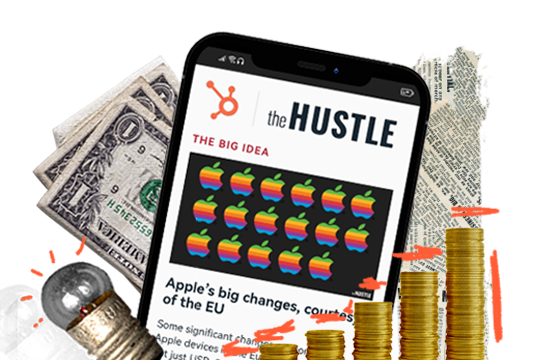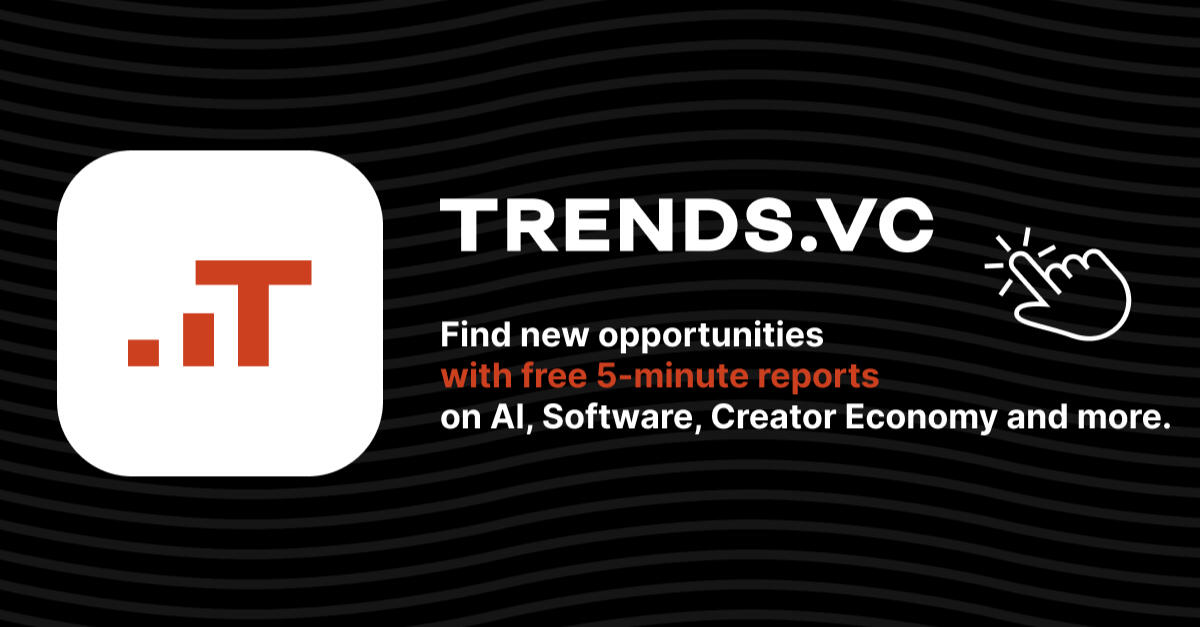- The Modern Warfare
- Posts
- Elon Musk’s Secret Chinese Cash: Is Beijing Buying America’s Tech Future?
Elon Musk’s Secret Chinese Cash: Is Beijing Buying America’s Tech Future?
Unveiling the Hidden Stakes in SpaceX, Neuralink, and xAI Amid U.S.-China Tensions
Paying the bills
Stay up-to-date with AI
The Rundown is the most trusted AI newsletter in the world, with 1,000,000+ readers and exclusive interviews with AI leaders like Mark Zuckerberg, Demis Hassibis, Mustafa Suleyman, and more.
Their expert research team spends all day learning what’s new in AI and talking with industry experts, then distills the most important developments into one free email every morning.
Plus, complete the quiz after signing up and they’ll recommend the best AI tools, guides, and courses – tailored to your needs.
Links We Like
This is absolutely insane:
On February 20th, JP Morgan CEO Jamie Dimon sold $234 million worth of $JPM stock.
On February 22nd, Warren Buffett announced a record $334 BILLION cash balance.
12 days later, the Nasdaq 100 crashed -11%.
How did they know?
(a thread)
— The Kobeissi Letter (@KobeissiLetter)
4:13 PM • Mar 9, 2025
As a professional decision maker, I have spent my life studying how to make decisions effectively and have constantly looked for rules and systems that will improve my odds of being right and ending up with more of whatever it is that I am after.
— Ray Dalio (@RayDalio)
12:47 PM • Mar 10, 2025
The Hidden Links: Chinese Investment in Elon Musk’s Ventures
In a time of heightened geopolitical tensions between the United States and China, a surprising financial development has emerged—wealthy Chinese investors are quietly securing stakes in some of Elon Musk’s most influential companies. Reports indicate that Chinese-backed asset managers have facilitated the sale of over $30 million in shares of SpaceX, xAI, and Neuralink to Chinese investors over the past two years. This influx of capital, though largely driven by profit motives, has raised questions about the broader implications of such financial entanglements.
Investment Strategies: The Role of Special-Purpose Vehicles
Given the current strained relationship between Washington and Beijing, direct investments by Chinese entities in key U.S. technology firms would likely draw intense scrutiny from regulators. To bypass these concerns, Chinese investors are utilizing special-purpose vehicles (SPVs)—a financial mechanism that allows capital to be funneled discreetly into private U.S. companies without the direct involvement of Chinese state-owned enterprises or publicly identifiable Chinese investors.
SPVs are commonly used for risk management and investment consolidation, making them an effective tool for maintaining financial anonymity. In this case, they serve as a way for Chinese capital to reach Musk’s businesses without causing regulatory alarm.
Why Musk’s Companies?
Elon Musk’s portfolio includes ventures at the forefront of artificial intelligence, space exploration, and neurotechnology—sectors with strategic importance for national security and technological leadership. SpaceX, for example, is a critical contractor for NASA and the U.S. Department of Defense, providing satellite deployment services and space transportation. Neuralink, on the other hand, is pioneering brain-computer interfaces, a field that has potential military applications as well as life-changing medical implications. Meanwhile, xAI aims to compete with OpenAI, Google DeepMind, and other leaders in artificial intelligence development.
For Chinese investors, Musk’s enterprises offer attractive growth opportunities. The rapid advancements in AI, aerospace, and biotechnology present potential for enormous financial returns. However, given the strategic significance of these technologies, such investments also invite scrutiny from U.S. policymakers who are wary of foreign influence.
China’s Complex Relationship with Musk
China’s financial interests in Musk’s ventures are paradoxical. On one hand, Tesla has extensive operations in China, where it produces Model 3 and Model Y vehicles for both domestic sales and exports to global markets, including Europe. Yet, sales of these vehicles in Europe have plummeted by 45% in early 2025, raising questions about Tesla’s future reliance on China as a production hub. Despite this, Musk has maintained strong relations with Chinese officials, including President Xi Jinping, reinforcing Tesla’s foothold in the country.
Conversely, some of Musk’s other ventures, including SpaceX and the social media platform X (formerly Twitter), are perceived as security threats by Beijing. SpaceX’s Starlink satellite system has been instrumental in providing internet access in geopolitically sensitive regions such as Ukraine, a development that has reportedly irked Chinese authorities. Meanwhile, X remains banned in China, reflecting Beijing’s control over social media and digital communications.
Refind - Brain food is delivered daily. Every day we analyze thousands of articles and send you only the best, tailored to your interests. Loved by 510,562 curious minds. Subscribe. |
Regulatory and Geopolitical Ramifications
The quiet influx of Chinese capital into Musk’s companies raises a host of regulatory and national security concerns. The United States has tightened restrictions on Chinese investments in sensitive technologies, with measures such as the Foreign Investment Risk Review Modernization Act (FIRRMA) empowering the Committee on Foreign Investment in the United States (CFIUS) to block transactions deemed to pose a threat to national security.
Should regulators determine that these investments provide China with access to sensitive technology or strategic influence, they could take steps to unwind the transactions. However, given the indirect nature of these investments through SPVs, enforcing such measures would be challenging. This raises a broader debate about how the U.S. should approach foreign capital flows in industries critical to national security.
At the same time, China is also tightening its grip on outbound investments in response to economic slowdowns and capital flight. As a result, the willingness of Chinese investors to take risks by funneling capital into U.S. firms underscores their confidence in Musk’s enterprises, despite the political complexities.
The Global Tech Battlefield
Musk’s ventures sit at the intersection of the global technology race, where both the U.S. and China are vying for supremacy in AI, space exploration, and next-generation computing. China has aggressively expanded its own AI ecosystem, with companies like Alibaba, Tencent, and Huawei leading the charge. Additionally, Beijing is advancing its space ambitions through the China National Space Administration (CNSA), which recently launched its own satellite networks and lunar exploration missions.
Despite the technological rivalry, China’s continued financial interest in Musk’s projects indicates that economic and strategic motivations are deeply intertwined. For U.S. policymakers, the challenge lies in balancing open markets with national security imperatives, ensuring that American technological leadership remains safeguarded while fostering innovation and investment.
Conclusion: Navigating the Future of Cross-Border Investments
The covert Chinese investments in Elon Musk’s companies highlight the complex and often contradictory nature of U.S.-China financial and technological relations. While profit-driven motives may dominate these transactions, their potential implications cannot be ignored. The use of SPVs to circumvent regulatory scrutiny signals a need for more comprehensive oversight in cross-border investments, particularly in industries that hold national security significance.
Moving forward, U.S. regulators will need to reassess the mechanisms through which foreign capital enters critical technology sectors. The challenge is to strike a balance—encouraging innovation and investment while protecting sensitive industries from undue foreign influence. At the same time, China’s calculated approach to investing in Musk’s empire suggests that economic interdependence remains strong, even amid geopolitical tensions.
As technology continues to shape global power dynamics, the question remains: Can the United States and China maintain economic cooperation without compromising national security? The answer will shape the future of global innovation and financial markets for years to come.
If you enjoy this newsletter, please consider sharing it with your friends and business contacts by clicking the button below. ⬇️
Thank you for reading this far. Please share your thoughts and join the conversation in the comment section below.
About The Modern Warfare
We strive to provide insightful and unbiased reporting on the most pressing issues of our time. Subscribe to our newsletter to stay informed and ahead of the curve.
Stay informed. Stay vigilant. Stay ahead.
The Modern Warfare Team
Disclaimer: This newsletter is for informational purposes only and should not be construed as financial or political advice.






